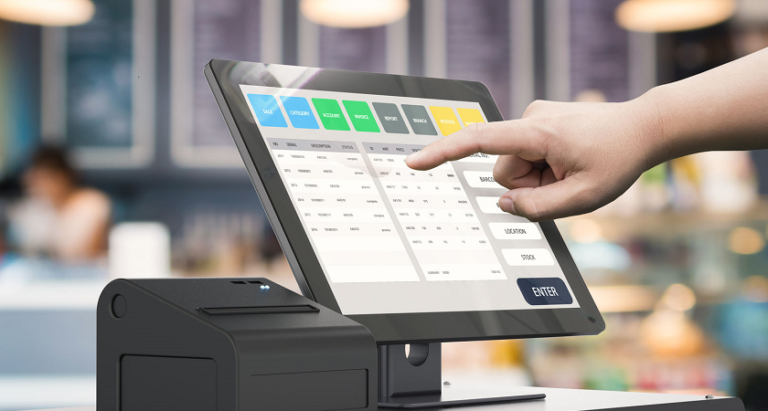Point of Sale (POS) systems are essential tools for any business that wants to streamline its operations and improve customer service. However, like any technology, POS systems can experience issues that can disrupt your business and cause frustration for your customers.
Common POS Issues
- Slow Performance: Slow performance is one of the most common issues that businesses face with their POS systems. This can be caused by a variety of factors, including outdated hardware, software conflicts, and network issues.
- Payment Processing Errors: Payment processing errors can occur for various reasons, such as incorrect card information, expired cards, insufficient funds, or connectivity issues.
- Inventory Management Issues: Inventory management is a crucial aspect of any business, and POS systems can help automate the process. However, issues such as incorrect inventory counts, missing items, or inaccurate pricing can cause significant problems.
- Software Glitches: Software glitches can cause your POS system to freeze, crash, or malfunction. These issues can be caused by bugs in the software, compatibility issues, or outdated software.
Tips for Troubleshooting Common POS Issues
- Slow Performance: To troubleshoot slow performance, start by checking your hardware. Ensure that your computer or tablet meets the minimum system requirements for the Point of sales software. If your hardware is outdated, consider upgrading to a newer model. Additionally, check for conflicts with other software on your device. Finally, ensure that your network is operating correctly and that your internet connection is stable.
- Payment Processing Errors: To troubleshoot payment processing errors, start by checking the card information entered by the customer. Ensure that the card number, expiration date, and CVV are correct. If the card is declined, ask the customer to check with their bank to ensure that they have sufficient funds. If the issue persists, check your network connection and contact your payment processor for further assistance.
- Inventory Management Issues: To troubleshoot inventory management issues, start by conducting a physical inventory count to ensure that your records are accurate. If you find discrepancies, investigate the cause and make the necessary adjustments. Additionally, ensure that your pricing is correct, and that your POS system is properly synced with your inventory management software.
- Software Glitches: To troubleshoot software glitches, start by updating your POS software to the latest version.
If the issue persists, check for compatibility issues with other software on your device. Additionally, ensure that your device meets the minimum system requirements for the POS software. If all else fails, contact your POS software provider for further assistance.
Preventing POS Issues
Preventing POS issues is essential for ensuring smooth business operations and happy customers. Here are some tips for preventing POS issues:
- Regular Maintenance: Regularly maintain your POS hardware and software to ensure that they are up to date and functioning correctly.
- Training: Ensure that your staff is properly trained on how to use the POS system. This will help prevent user errors and reduce the risk of issues.
- Security: Protect your POS system from security threats by implementing strong passwords, limiting access to sensitive information, and using anti-virus software.
- Backups: Regularly backup your POS data to prevent loss of important information in case of hardware or software failure.
Choosing the Right POS System
Choosing the right Point of sales system is crucial for preventing issues and ensuring that your business runs smoothly. Here are some factors to consider when choosing a POS system:
- Compatibility: Ensure that the POS system is compatible with your hardware and software.
- Ease of Use: Choose a POS system that is user-friendly and easy to learn, which will help prevent user errors and reduce the risk of issues.
- Features: Choose a POS system that has the features you need, such as inventory management, reporting, and payment processing.
- Customer Support: Ensure that the POS system provider offers reliable customer support, which will help you troubleshoot issues and prevent downtime.
- Cost: Consider the cost of the POS system, including hardware, software, and ongoing support, to ensure that it fits within your budget.
Outsourcing POS Support
Outsourcing POS support can be an effective way to prevent and troubleshoot issues. Here are some benefits of outsourcing POS support:
- Expertise: Outsourcing POS support gives you access to experts who have experience troubleshooting and preventing issues.
- Cost-Effective: Outsourcing POS support can be more cost-effective than hiring an in-house support team.
- Time-Saving: Outsourcing POS support can save you time and allow you to focus on other aspects of your business.
- 24/7 Support: Outsourcing POS support can provide 24/7 support, which can help prevent downtime and keep your business running smoothly.
Conclusion
In conclusion, choosing the right POS system, preventing issues, and troubleshooting common issues are essential for ensuring smooth business operations and happy customers. Outsourcing POS support can be a cost-effective and time-saving solution for preventing and troubleshooting issues. By following the tips and best practices outlined in this article, businesses can minimize the risk of issues and ensure that their POS system is a valuable asset to their operations.

